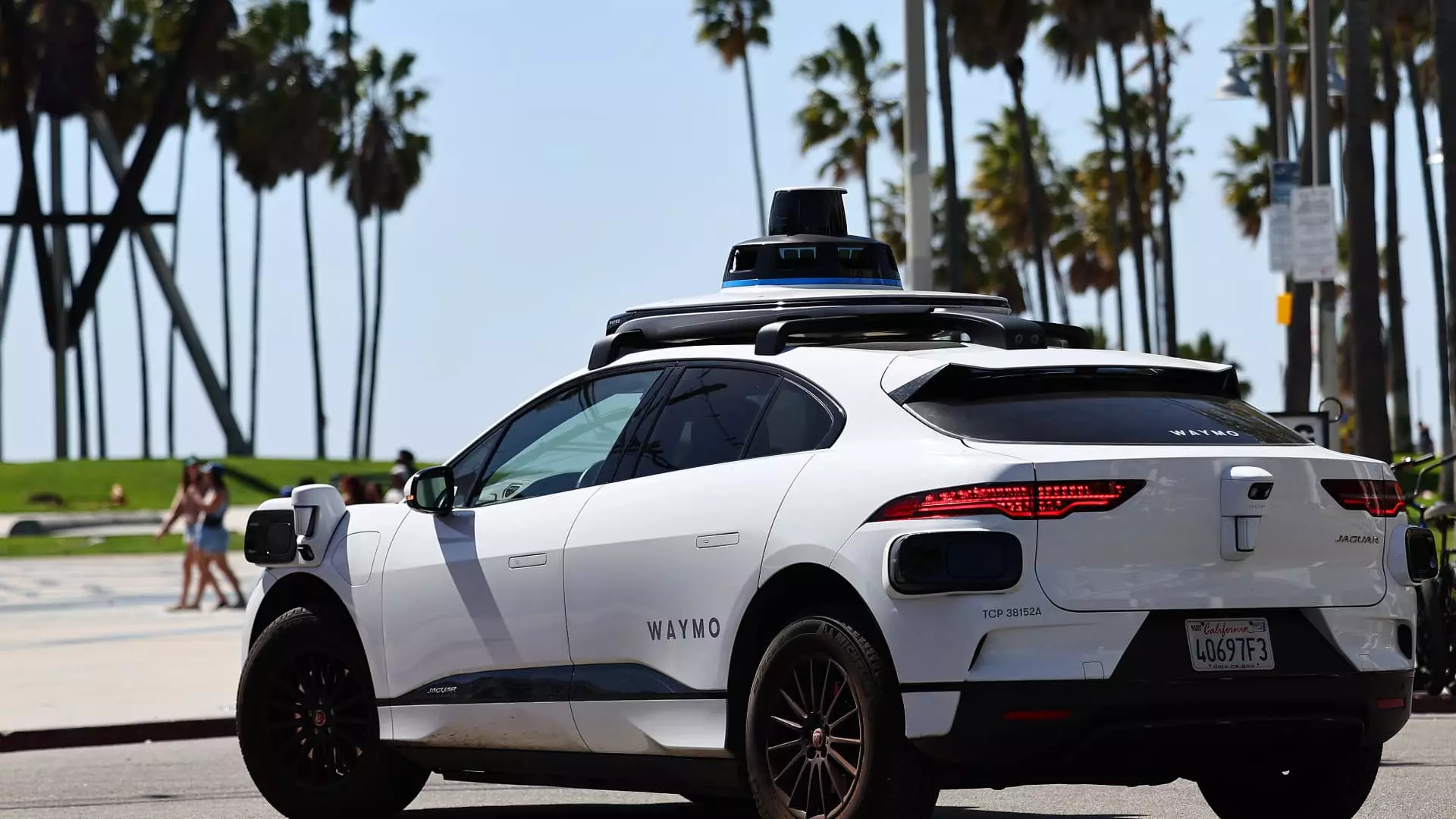The advent of self-driving technology has transformed the landscape of transportation, with companies like Waymo leading the charge. Recent news of Waymo closing a $5.6 billion funding round underscores its ambition to not only expand its robotaxi services in major U.S. cities but also push the boundaries of autonomous technology into new realms. With backing from Alphabet, Waymo’s parent company, and a consortium of high-profile investors, the venture sets its sights on scaling its operations in significant metropolitan areas such as Los Angeles, San Francisco, and Phoenix.
In an impressive feat, Waymo’s latest investment round, primarily led by Alphabet, brings its total raised capital to over $11 billion. This robust funding is a testament to the confidence investors have in Waymo’s innovative direction. Co-CEOs Tekedra Mawakana and Dmitri Dolgov have articulated plans to use this considerable capital influx to enhance the Waymo Driver technology, which powers their ridesharing service, Waymo One. With major expansions in mind, Waymo aims to introduce its services in two new cities: Austin, Texas, and Atlanta, Georgia, further extending its reach through a partnership with Uber, which is pivotal for operational scaling.
Waymo’s continued development of driverless technology signals a shift in consumer ride-hailing experiences, emphasizing safety and reliability through computer-driven systems. Unlike many of its competitors that have only been testing autonomous vehicles, Waymo has already established a functioning robotaxi service, a significant milestone. This operational advantage is crucial as it continues to conquer new markets while enhancing rider confidence.
Waymo’s closest competitor in the autonomous vehicle domain, GM’s Cruise, has faced significant setbacks, especially following a pedestrian accident in San Francisco. The fallout from such incidents can be catastrophic, both for the companies’ reputations and their operational timelines. Cruise’s operational pause underscores the challenges of convincing the public that self-driving technology offers a safer alternative to traditional taxi services. While they work to regain operational status, Waymo stands out as the only company currently providing a commercial robotaxi service in multiple significant urban markets.
The road to widespread acceptance of autonomous vehicles is still fraught with skepticism. A Pew Research Center survey revealed that nearly two-thirds of respondents would be wary of riding in a driverless vehicle, reflecting a significant hurdle for companies in the industry. Waymo, however, asserts that their vehicles experience accidents less frequently than human-operated cars, a claim supported by independent analysis. The company continues to prioritize safety improvements, highlighting its commitment to refining its technology even as it navigates the complexities of public perception.
The latest version of Waymo’s robotaxi, based on the Geely Zeekr platform, comes equipped with cutting-edge sensors and proprietary artificial intelligence. This vehicle upgrade reflects Waymo’s intent to remain at the forefront of autonomous vehicle technology, uniquely positioning itself in the market. Furthermore, the company’s recent partnership with Hyundai to introduce the Ioniq 5 into its fleet is a clear indication of its strategy to leverage collaborations to boost its service capabilities.
Waymo’s ambitions extend beyond the confines of urban areas and into new, challenging terrains. In August, the announcement of plans to test driverless vehicles in winter weather conditions across regions like northern California and Michigan is a significant strategic move. It demonstrates Waymo’s commitment to overcoming geographical and environmental limitations, which is essential if it aims to operate in diverse climates and expand its service internationally.
Waymo’s latest funding round is not just financial backing; it embodies a pivotal moment for the autonomous vehicle industry. As cities increasingly embrace technology-driven solutions for urban mobility, Waymo strives to revolutionize the way people think about transportation. By directing significant resources towards enhancement and expansion, coupled with strategic partnerships, Waymo stands poised to fortify its market leadership. However, the road ahead is laden with challenges, including regulatory hurdles, public skepticism, and the imperative to sustain a safe operational environment. For Waymo, it is not merely about deploying technology, but also about fostering trust in a future where autonomous vehicles transform everyday commuting experiences.


Leave a Reply